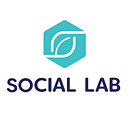Key Insights from the SS-2023 toolkit for improving the SS-2023 score and performance
The Ministry of Housing and Urban Affairs (MOHUA) launched the ‘Swachh Survekshan 2023’ toolkit on 24th May 2022 with the theme of “Waste to Wealth” for garbage-free cities. Notably, this year, the toolkit has been released much earlier compared to the last year (which was in September 2021), and the assessment shall also be completed earlier by the end of December 2022. Therefore, it is very crucial to understand the changes in SS-2023 (as compared to SS-2022) and the focus areas of SS-2023.
What has changed in SS-2023?
More weightage of Service Level Progress (SLP) component
SLP component has been given more importance and its share has increased from 40% (in SS-22) to 48% (in SS-23), while the shares of certification and citizen voice components have marginally reduced.
Focus Areas under SLP
i ) 100% Segregated Collection
It is considered important as its share is increased from 30% (SS-22) to 39% (SS-23) of the SLP score.
ii) Processing & disposal
There is a continued focus on ‘waste processing and disposal’ as its share under SLP remains at 40% in both SS-23 and SS-22.
iii) Plastic Waste Management
Plastic waste management has been accorded high importance as its share under SLP is increased from 2% (in SS-22) to 10% (in SS-23). Notably, there are also new components added such as:
a) Development of a comprehensive action plan for Plastic Waste Management
b)Approval of at least 1 tender for setting up of PWM facilities (MRF, PW processing, etc.)
The PWM facility should ensure that the plastic waste is properly segregated and bailed as per its types broadly as recyclable (by further sub-types) and non-recyclable.
c)Processing of plastic waste (out of total plastic waste generated by the city)
It is necessary to ensure that at least 61% of the plastic waste generated is processed for obtaining the maximum marks. To enhance plastic processing, the ULBs should ensure source segregation, set up of PWM facility, and establish forward linkages with the recyclers through an EPR/ PWM agency.
iv) 3R initiatives
There is a greater emphasis on 3R initiatives as the respective weightage under SLP is increased from 2% to 6.41%. Notably, a new indicator on ‘waste to wonder’ park is introduced with 2% weightage.
v) Zero ‘Red Spots’ (no public spitting)
A new indicator on ‘Red Spots’ (spitting in commercial /residential areas) under cleaning of public areas is introduced with a share of 1.76% of SLP.
vi) Divyang-friendly toilets
More focus is imparted on ensuring Divyang-friendly public & community toilets and urinals as its share is increased from 3% to 9% under the ‘used water component’.
Focus Areas under Citizen Voice (CV)
· Swachh Ward ranking
The share of Swachh Ward ranking (to be conducted on monthly basis) is increased from 1% to 13% of the CV component.
· Complaint resolution on Yellow Spots (Open Urination)
More focus is laid on the resolution of complaints on Yellow Spots (Open Urination) as its share is increased from 10% to 18% under Swachhata App indicators.
Process changes in SS-2023
To understand the complete requirements under SS-2023, please go through our detailed checklist at the link https://bit.ly/SStoolkit2023
In case you have any queries or suggestions, please contact Shri. Kunal Thakur (+91–9960479785) or send us an email at kunal@social-lab.in.
Social Lab Environmental Solutions is a waste management consultancy company providing end-to-end consultancy services to the ULBs on solid waste management and plastic waste management. Our core expertise includes capacity building, waste assessment, IEC campaign design & implementation, scheme compliance documentation, GPS collection route designing, and monitoring, and providing technical advisory and market linkages for efficient wet and dry waste management.
To know more about us and the sector updates, please visit our website (www.social-lab.in) and follow us on social media (https://linktr.ee/Social_Lab).
